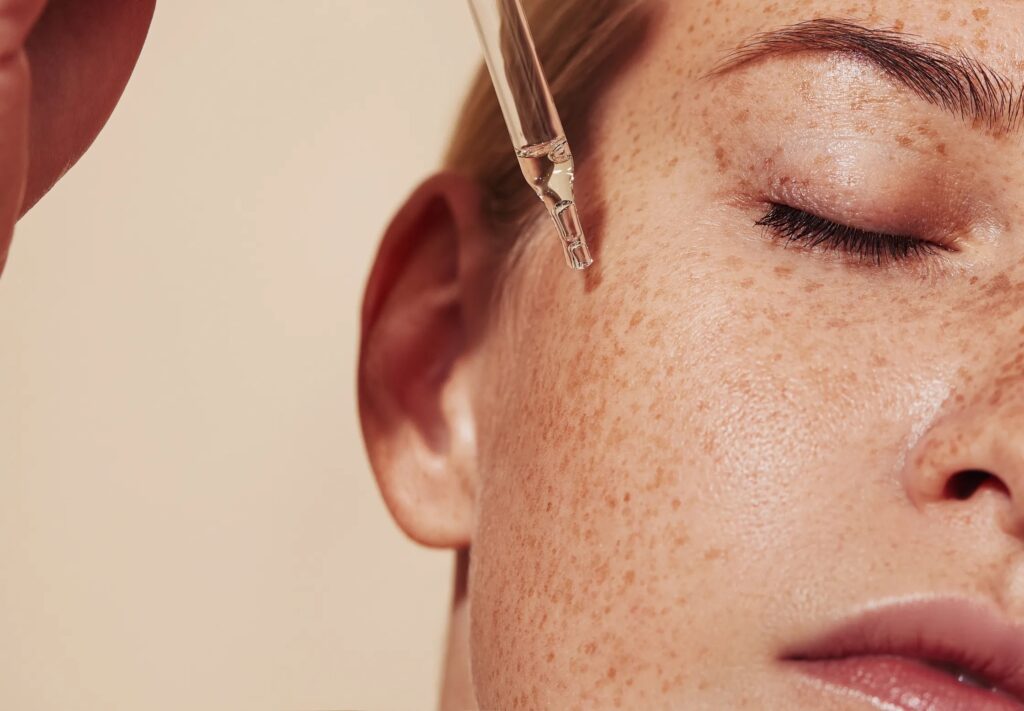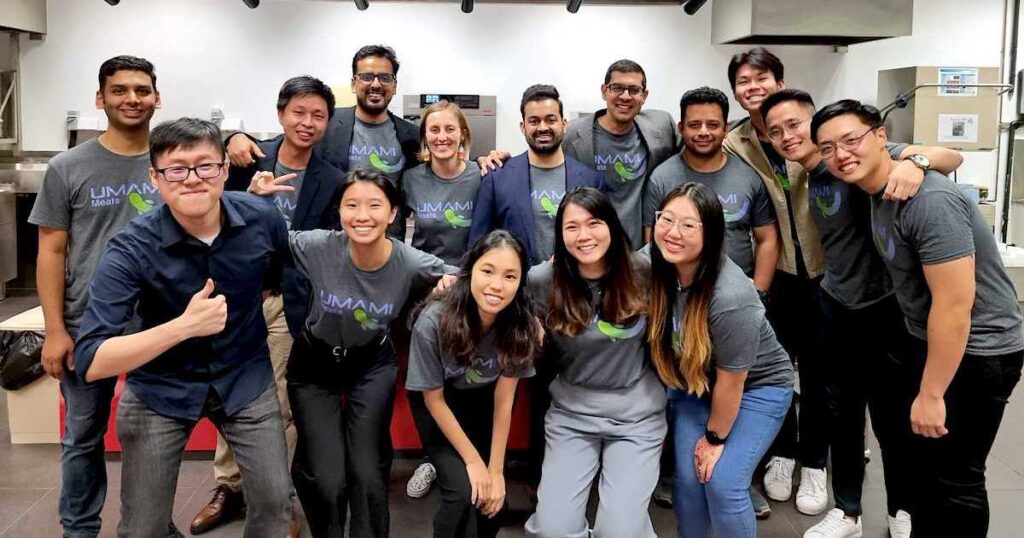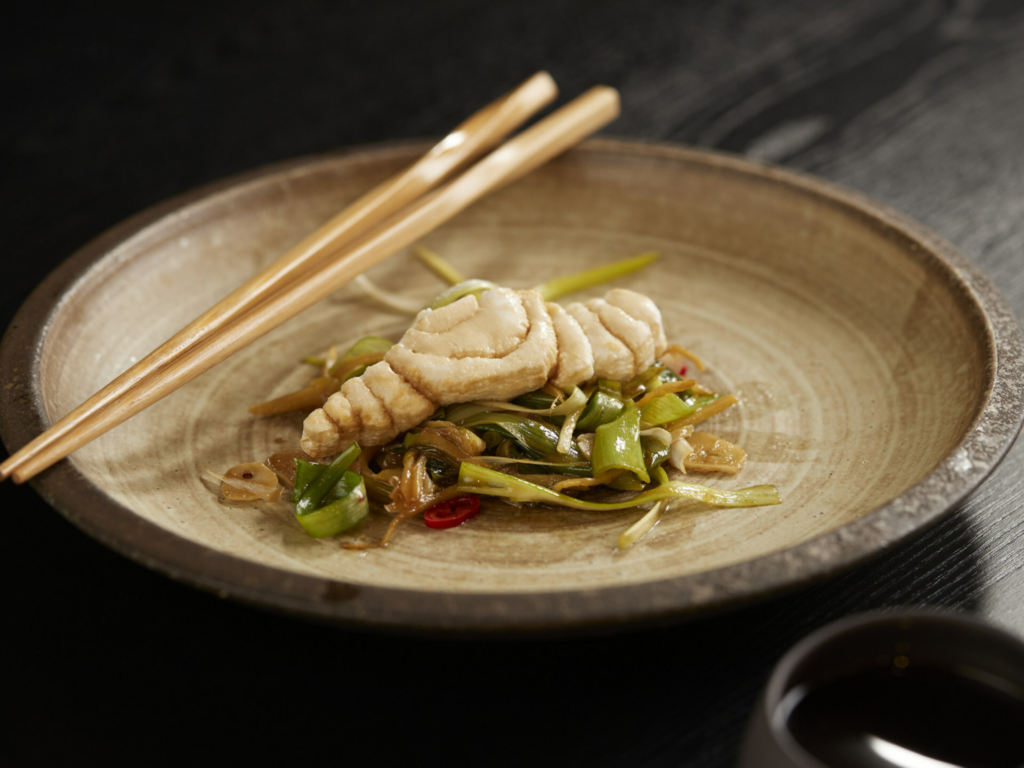
Singaporean cellular agriculture startup Umami Bioworks has launched Marine Radiance, a line of cell-cultured marine bioactives, starting with regenerative compound PDRN.
Singapore-based Umami Bioworks has expanded its AI-led cell cultivation platform to produce sustainable marine bioactives for use in the personal care and nutraceutical industries.
They will be sold under a new line called Marine Radiance. “We launched it to address supply chain instability, ethical concerns, and quality variability that have long limited access to high-efficacy marine ingredients,” Gayathri Mani, the firm’s product manager, tells Green Queen.
Umami Bioworks has unveiled animal-free polydeoxyribonucleotide (PDRN) as the inaugural ingredient of this range. The compound is traditionally extracted from salmon sperm, and is a fast-growing ingredient used in skincare, wound healing, and regenerative medicine.
“We are rethinking how bioactives like PDRN are made,” says Mani. “Our platform provides a scalable, animal-free source of PDRN with optimised yields and the flexibility to meet growing global demand through localised production.”
Why Umami Bioworks began bioactive line with PDRN

Known primarily for its cultivated seafood portfolio, Umami Bioworks diversified from its protein portfolio last year, creating a pathogen-detecting tool for the seafood industry.
The Marine Radiance portfolio is an extension of its core AI platform, Alkemyst, which enables a faster, more precise R&D approach to growing and optimising the production of any marine species.
“Applying this capability to challenges in marine bioactives allowed us to rapidly move from ingredient discovery to our Marine Radiance portfolio of market-ready solutions that offer consistent, scalable, and traceable supply,” explains Mani.
PDRN has made a meteoric rise in the active ingredients world, especially for skincare, thanks to its prominence in the K-beauty space. Studies suggest the ingredient has anti-inflammatory and wound-healing properties, with the ability to synthesise collagen and reduce hyperpigmentation.
However, the regenerative compound faces a host of challenges, from supply consistency and ethical concerns to biosecurity risks. Umami Bioworks’s cell biology platform allows it to produce bioidentical PDRN by cultivating marine cell lines under precisely controlled conditions, eschewing the need to transport salmon testicles globally.
“Our PDRN is produced through a proprietary cell cultivation and downstream harvesting process powered by our Alkemyst platform, which precisely replicates and optimises the natural conditions needed to produce a bioequivalent, animal-free ingredient, with unmatched consistency and purity, at price parity with current PDRN,” says Mani.
The global market for PDRN was valued at $72M last year, but analysts predict it to grow rapidly to reach $855M in 2031, thanks to its various skincare and medical applications, as well as rising demand for cruelty-free anti-ageing and regenerative solutions.
Marine Radiance bioactives face regulatory challenges

Umami Bioworks is already in early talks with personal care and regenerative medicine customers to co-create PDRN-based products, including anti-ageing and skin repair products.
“Marine Radiance bioactives can be applied across high-performance skincare, ingestible beauty, regenerative medicine, and advanced nutritional supplements,” notes Mani, adding that it’s working with partners to develop products with other marine actives that support collagen production, wound healing, and cellular regeneration.
“These collaborations are focused on delivering premium, sustainable products that match or exceed the efficacy of their animal-derived counterparts while offering unmatched consistency and traceability,” she says.
For cosmetics, the use of bioactives is regulated differently across markets. “In South Korea, pre-market notification is required, with a more rigorous approval process required for ‘functional’ cosmetics Similarly, Japan distinguishes cosmetics, which require streamlined notification, from ‘quasi-drugs’, which require approvals,” Mani explains.
“Umami works closely with partners to understand their desired product strategy and to align our regulatory approach with the product positioning and intended claims.”
With cell-based ingredients, price is always front of mind. Umami Bioworks has aligned its costs with premium marine bioactives, making the Marine Radiance range accessible for brands “looking to differentiate with high-efficacy, sustainable ingredients”.
“Our initial launch will be through select B2B partnerships in skincare and ingestible beauty, with several leading brands already in advanced discussions,” says Mani. “We are targeting scaled production by Q4 to enable these partners to bring new formulations to market quickly, and with reliable supply.”
Umami Bioworks plans fundraise as cultivated seafood progresses

The diversification of its portfolio doesn’t mean Umami Bioworks is abandoning its cultivated seafood dream. The company has quietly been making moves on this front, having submitted regulatory dossiers in major markets across North America, Europe, and Asia.
The firm has secured partnerships in India and South Korea to scale up and launch into market, and is also in active discussions with the UK’s Food Standards Agency.
“We have active development programmes for Japanese eel and bluefin tuna with global seafood and food CPG companies as commercialisation partners, and a white fish development programme in the early stages,” says Mani.
“Our eel programme is the most advanced, with regulatory filings made in several key markets and production running at pilot scale. We are planning multiple product launch campaigns with our partners and will share more on those campaigns in the near future,” she adds.
This year has marked the arrival of the first cultivated seafood product on the market, with Wildtype securing approval for its cell-cultured salmon from the US Food and Drug Administration and now selling it in several restaurants.
Umami Bioworks isn’t the only cultivated seafood startup to expand its portfolio past the food industry. Fellow Asian firm Avant has developed ZelluGen, a cell-cultured peptide complex, using its Zellulin BioPlatform.
Now, Umami Bioworks is looking to open up a new investment round to speed up its path to market. “We do have plans to fundraise in the coming months to support market launches of first products in collaboration with our customers and to enable us to deliver a first full-scale production facility for a major customer,” says Mani.
The post Umami Bioworks Expands AI Platform for Cell-Based Marine Bioactives appeared first on Green Queen.
This post was originally published on Green Queen.